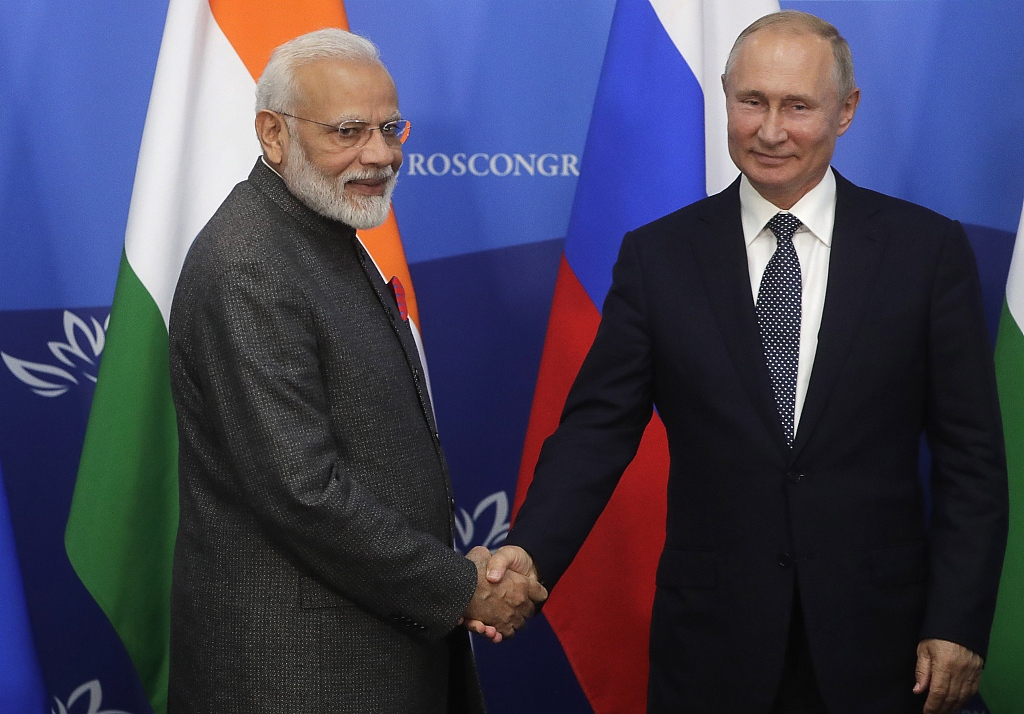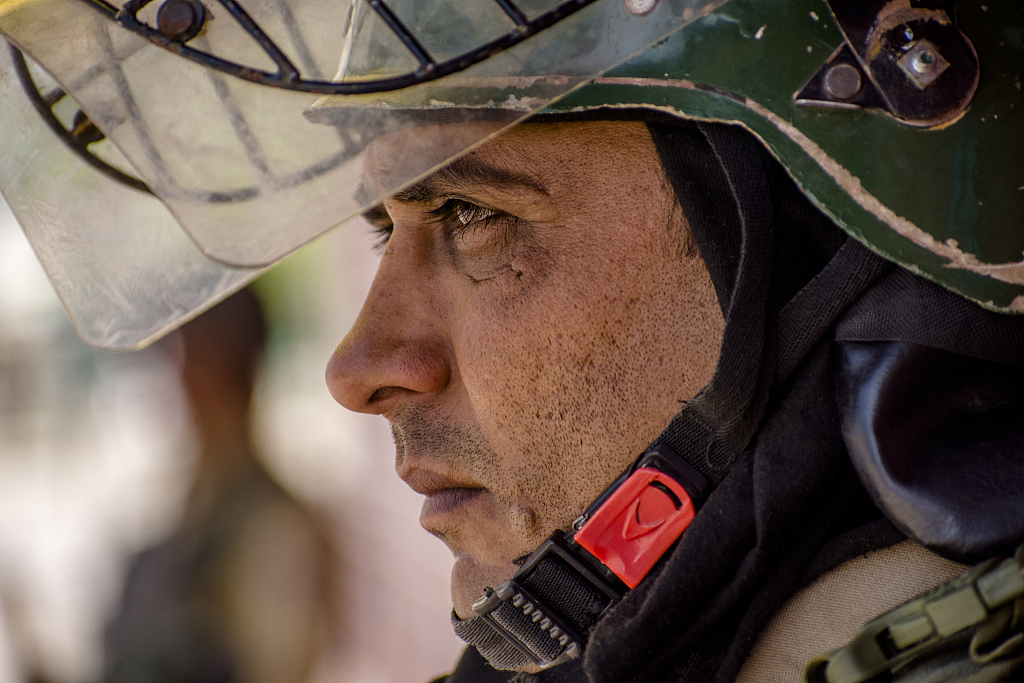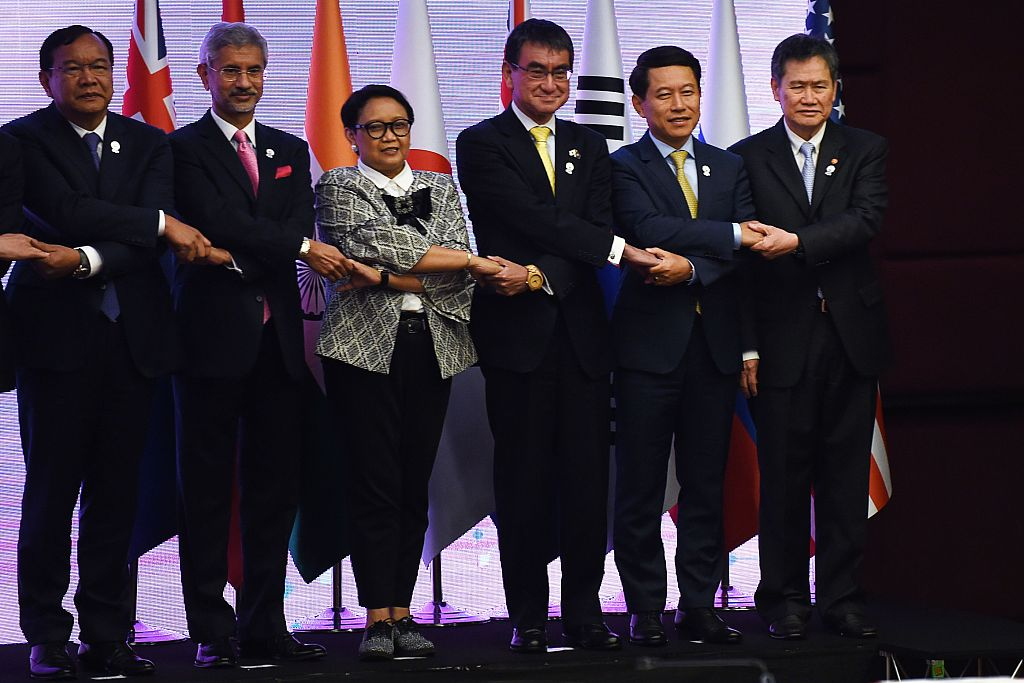
All eyes are on Russia-India ties as Indian Prime Minister Narendra Modi attends the Eastern Economic Forum (EEF) in Vladivostok this week. Moscow's clear support to India on the Kashmir issue makes the visit more special.
Strengthening bilateral relations in the field of oil and gas exploration will be high on the agenda during Modi's visit, said Indian Foreign Secretary Vijay Keshav Gokhale, adding that the two sides want to move beyond the conventional cooperation in defense and civil nuclear cooperation to new economic frontiers.
After meeting the Group of Seven (G7) leaders, this comes as yet another important international visit for Modi following the abrogation of Article 370, which provided near-autonomy for the disputed Jammu and Kashmir.

Indian Prime Minister Narendra Modi (L) and Russian President Vladimir Putin shake hands before a joint press conference on the sidelines of the 2019 Eastern Economic Forum in Vladivostok, Russia, September 4, 2019. /VCG Photo
'Exactly the same'
New Delhi has enjoyed consistent support from Moscow on the Kashmir issue for years.
Last week, Nikolay Kudashev, Russia's ambassador in India, said that Moscow's position on Kashmir was identical to New Delhi's view.
"Abrogation of Article 370 is a sovereign decision of the Indian government. It is an internal matter of India and such issues can be resolved between India and Pakistan under the Shimla and Lahore agreements. Our views are exactly the same as India's," said Kudashev.

Indian paramilitary trooper stands guard at the deserted city square in Srinagar, Indian-administered Kashmir, August 20, 2019. /VCG Photo
The tensions between India and Pakistan flared up after India revoked the "special status" of India-administered Kashmir and split it into two union territories on August 5.
Read more:
Where will Kashmir crisis head to?
India will have to make some tough choices during Modi's second term
The move triggered massive outrage in Pakistan, which then downgraded its diplomatic relations with India, expelled the Indian high commissioner, and suspended trade.
However, this is not the first time Russia has made such remarks in support of India's decisions on Kashmir.
Time-tested friends
This year marks 72 years of the establishment of diplomatic relations between Russia and India.
During an event in Moscow, India's External Affairs Minister S. Jaishankar recently asserted that the world has changed, but India and Russia relations have remained "a stable factor in international life."

(L-R) Cambodia's Foreign Minister Prak Sokhon, India's External Affairs Minister S. Jaishankar, Indonesia's Foreign Minister Retno Marsudi, Japan's Foreign Minister Taro Kono, Laos' Foreign Minister Saleumxay Kommasith and ASEAN Secretary-General Lim Jock Hoi pose for a photo in Bangkok, Thailand, August 2, 2019. /VCG Photo
Under strategic partnership since 2000, the two countries upgraded their ties to "Special and Privileged Strategic Partnership" in 2010.
Today, Moscow shares particularly close relations with Delhi as Russia is India's largest arms supplier, accounting for over 70 percent of the total Indian military hardware.
In July, Indian news agency ANI reported that India has signed a deal worth around 1,500 crore Indian rupees (around 218 million U.S. dollars) to acquire R-27 air-to-air missiles from Russia to be equipped on the Su-30MKI combat aircraft.
Apart from military cooperation, the two sides also discussed energy cooperation, as Russia and India are one of the largest investors in each other's hydrocarbon sector. Preparations were also made for laying the groundwork for negotiations on agreeing on a free trade zone.
During the Vladivostok meeting, Russia and India are expected to set a target of around 30 billion U.S. dollars' worth of bilateral trade by 2025.
(Cover photo by CGTN's Yin Yating)

Copyright © 2018 CGTN. Beijing ICP prepared NO.16065310-3
Copyright © 2018 CGTN. Beijing ICP prepared NO.16065310-3